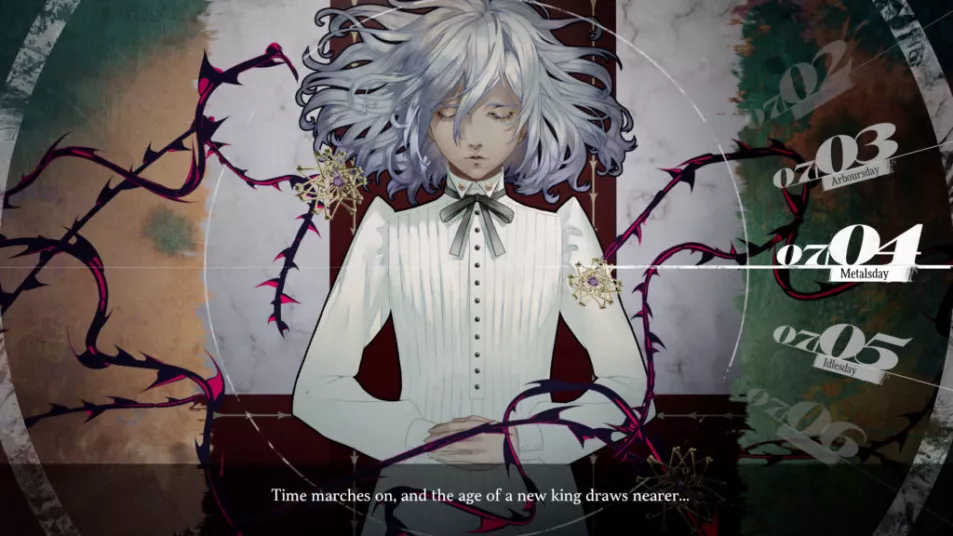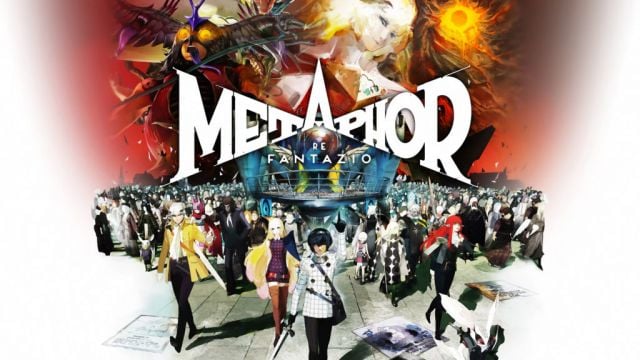Sega is world renowned for huge franchises, like Sonic the Hedgehog, Virtua Fighter, Phantasy Star and the excellent Yakuza series.
The firm is also behind cult classic series like Megami Tensei, made by its subsidiary Atlus. After taking off in their home country of Japan in the 90s, the spin-off series, Persona, gained a loyal following in the West during the 2000s.
After the release of the excellent Persona 5 in 2016, game director Katsura Hashino set up a new studio, Studio Zero, to develop a brand-new game, Metaphor: ReFantazio.
While there are attempts to do something new, Metaphor too often treads on familiar ground, leaving it feeling like a reskinned version of one of their more popular franchises.
For some, it might be the familiar formula they are looking for, but if you were hoping for a reinvention of the Atlus role-playing game, you will be sorely disappointed.
While the Persona is a series set in the modern world with elements of fiction, Metaphor is set entirely in the mediaeval fantasy world of Euchronia.
It is a kingdom made up of separate countries full of various tribes. Your character is part of the magic-wielding tribe known as Elda.

Mysterious curse
As a friend of the prince, you and your crew are tasked with finding a cure for the mysterious curse which took hold of him at a young age.
All signs point to the power-hungry Count Louis, who becomes the prime suspect after assassinating the King at the onset of the game.
While he wants the throne all to himself, a competition ensues to "win the hearts of the people" and become supreme ruler.
It essentially becomes a feudal version of the Rat Race where contestants travel around the country in their Gaunlet runners (mode of transport) to perform heroic deeds (killing monsters) and raise their reputation.
Ironically, the monsters are actually called humans, who are creatures that have been exposed to too much magla (magic).
These monsters are heavily inspired by Dutch painter Hieronymus Bosch's work The Garden of Earthly Delights.
That influence clearly seeps into the art design and the user interface (UI) which has a similar aesthetic.
It is like they are trying to give gamers a migraine with how much is going on visually.
While it is unique, in practice it is horrible to look at and the on-screen HUD is incredibly cluttered. It is like they are trying to give gamers a migraine with how much is going on visually.
Real world issues
Sadly, Metaphor also falters thematically when they try to mirror real world issues such as racism and oppression and completely miss the mark.
As you walk through the streets, drunkards shout "You filthy Elda!". While you can learn more about other tribes that are looked down on through side quests, they only explain who is oppressed rather than the history behind why.
It is a shallow representation of something that in truth should add weight to the world.
The same issues crop up with the characters who join you on your journey. Your two main allies are Strohl and Hulkenberg, who you met early on.
Neither are particularly interesting. Strohl reminds you every chance he gets he is a noble who lost his family when his town was burnt down. It gives him motivation to help you, but it is mostly used as a crutch to garner sympathy.
Meanwhile, Hulkenberg was a loyal servant to the Kingsguard and failed to protect the prince when he was cursed. While she is still coming to terms with all this, personality wise, it is like trying to draw water from a stone speaking to her.

There is also your obligatory guide Gallica. She is a fairy that follows you around and gives advice during battle. She can be helpful, but usually she shouts to heal your allies when it is abundantly clear they are hurt.
Speaking of battle, Metaphor's brightest moments come during its traditional turn-based combat, which offers a plethora of options.
Instead of personas, you study Archetypes, which vary from the brawler, The Warrior, The Mage or The Healer. Each have their own strengths and skills, but what is really clever is how you can inherit skills from any of them.
Archetypes
The system really comes in handy when there is a particular boss you are struggling with. You can simply press the touchpad on the DualSense, see what others have used, and switch to that lineup.
Once a character has studied an Archetype, they can switch to it from the menu without using a currency known as MAG.
It adds real flexibility to your arsenal and encourages you to experiment with different archetypes. There is also an active battle system, but you can only really use it on weaker enemies to spare yourself from drawn-out fights.
An impressive wrinkle to the turn-based formula are synthesis abilities. Your Archetypes can dovetail to unleash incredibly powerful attacks which each come with a bespoke animation.
One ability called Horse-Drawn Carnage deals heavy physical damage and is a combination between The Warrior and Seeker Archetypes.
It is a genuine highlight seeing The Warrior actually riding on a cart smashing into his foes like a bowling ball.
It is a genuine highlight seeing the warrior actually riding on a cart smashing into his foes like a bowling ball.
Outside of battle, you can spend time with your companions or do activities and side quests to raise your renown. It can be fairly dull seeing as your companions are quite reserved, and you can do such riveting tasks as sweeping...
Studio Zero also implements familiar mechanics from the Persona series like the calendar system, a traits system (royal virtues in Metaphor) and of course, the bond system with your allies.

The problem is how out of place it is. For example, your days are split up between day, afternoon and night. No matter what activity you choose to do, time passes.
There is usually some looming threat on the horizon as well that the calendar counts down to. While it certainly gives your mission some urgency, it is an arbitrary choice that adds nothing to the experience.
All it does is pad out the missions and add an unnecessary element of grinding to things.
It is clear Studio Zero is trying to shoehorn these systems into the game to appease fans. It is like putting a V8 engine into a 1920s station waggon.... you can do it, but they are not really compatible.
Metaphor is far from a bad game and there is well over 100 hours of content with the main story and side quests. The problem is just how safe it all ends up being in terms of game design.
When you add to that a largely forgettable cast and an inconsistent aesthetic, it makes for a disappointing entry from a developer who is revered for their iconic games.







